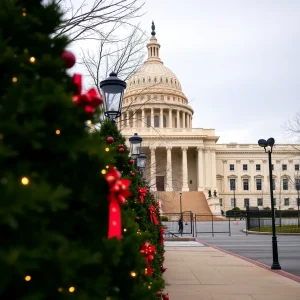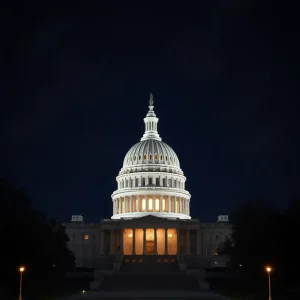COLUMBIA, S.C. — Appeals Filed to Delay Execution for Convicted Murderer
Marion Bowman Jr., a man sentenced to death for the 2001 murder of 21-year-old Kandee Martin, is seeking a last-minute appeal to the South Carolina Supreme Court. His legal team argues that his original defense attorney was inadequately prepared and exhibited bias during the trial, which they claim significantly affected the outcome of the case.
According to a court order, Bowman is currently next in line for execution. While the state Supreme Court has halted executions for the holiday season, a date for Bowman’s potential execution could be set as soon as January 3, 2025. This marks a critical moment not only for Bowman but also for the state’s ongoing discussions about the death penalty and its implications.
Background of the Case
Bowman, now 44 years old, was convicted of murdering Martin, whose body was discovered in the trunk of a charred vehicle. The details surrounding Martin’s death, including evidence of a relationship between her and Bowman, were part of the prosecution’s case. However, Bowman has consistently maintained his innocence.
Concerns Over Legal Representation
The appeal filed recently highlights significant concerns regarding Bowman’s initial defense. His attorney, Norbert Cummings, has been criticized for his handling of the case, with claims that he referred to Martin in a manner that suggested a lack of seriousness while demonstrating undue sympathy for her. For example, the appeal mentions that Cummings described Martin, a white woman, as “a little girl,” while referring to Bowman, who is Black, as “a man.” Such language suggests a bias that may not have allowed for a fair trial.
Bowman’s team has also pointed out that Cummings urged him to consider a guilty plea despite Bowman’s steadfast claim of innocence. Cummings argued that the jury may not empathize with a Black defendant and that a plea would spare him from facing the death penalty. This line of reasoning raises troubling questions about the effectiveness of defense strategies and the implications of racial bias in the justice system.
Witness Testimonies and Evidence
The evidence against Bowman largely came from individuals who testified in exchange for plea deals. According to Bowman’s current legal team, the prosecution failed to disclose critical information about these witnesses, including their psychological issues and potential motivations for testifying against Bowman. They argue that this lack of transparency could have influenced jurors’ perceptions and decisions.
“I don’t think I have read a transcript where so many people charged in a case got deals to testify,” Bowman’s attorney, Lindsey Vann, stated. “And then what they said happened changed over time. It’s just unreliable.” This raises further questions about the integrity of the testimony presented during the trial.
Potential Future Developments
As the legal proceedings continue, Bowman has exhausted all traditional appeals, leaving his future uncertain. He is one of four inmates in South Carolina currently scheduled for possible execution at intervals of five weeks starting in 2025. Two other inmates have been executed this year following legislation allowing the state to operate in secrecy regarding its lethal injection protocols.
Bowman’s appeal is not solely about contesting his conviction. It also seeks to share insights into how he has changed during his two decades on death row. Friends and staff members have described him as a “gentle giant” who has positively impacted fellow inmates, suggesting he has matured and taken on leadership roles in managing mental health support among his peers.
Next Steps
The South Carolina Supreme Court has yet to respond to the latest appeal, which requests a full hearing to address these concerns. Meanwhile, prison policies continue to restrict public access to inmates, complicating efforts for advocacy and transparency regarding death row conditions.
As the legal system processes this case, many watch closely, aware that the outcome may have far-reaching implications for discussions surrounding capital punishment in South Carolina and beyond.







